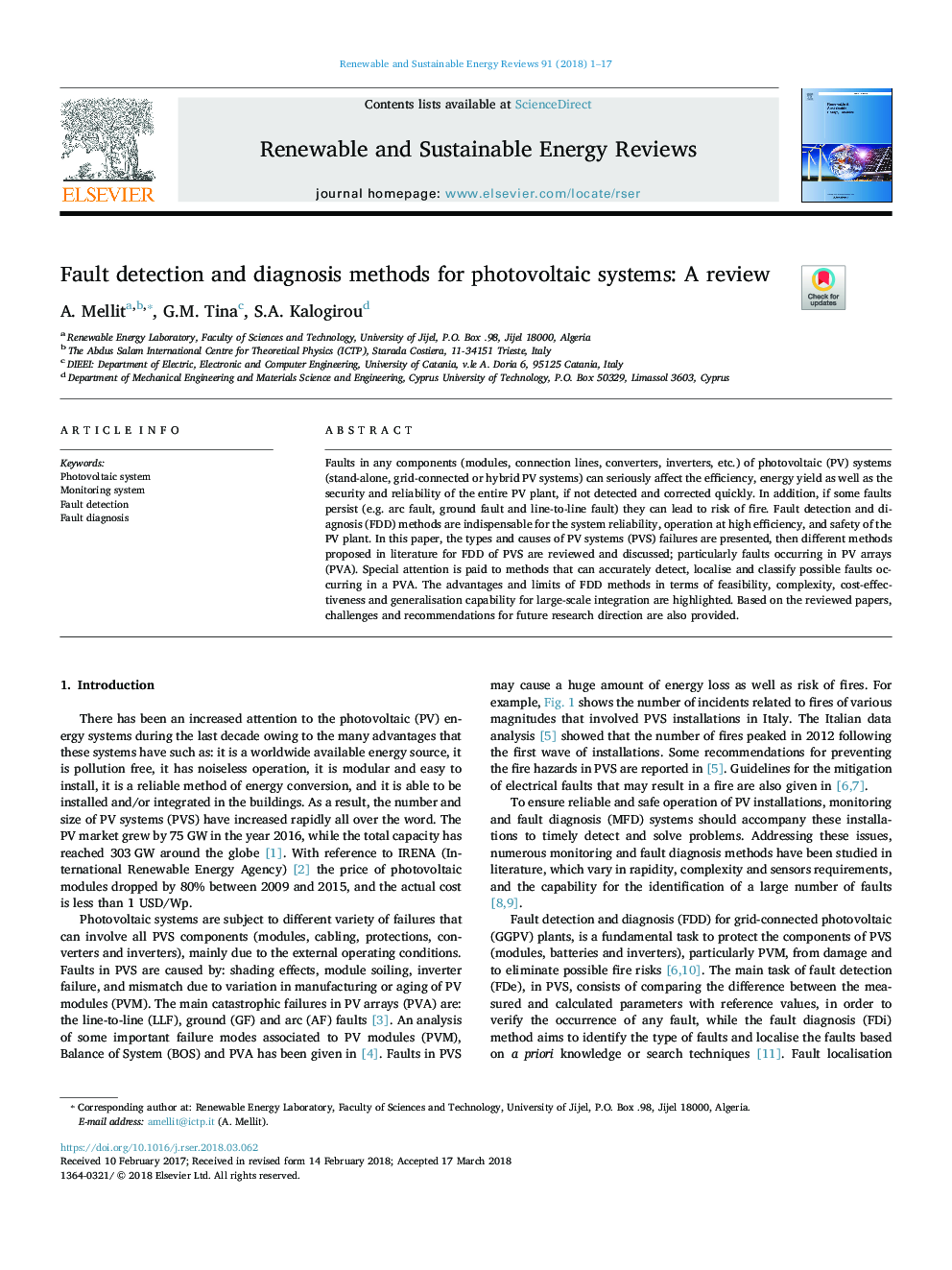| Article ID | Journal | Published Year | Pages | File Type |
|---|---|---|---|---|
| 8111027 | Renewable and Sustainable Energy Reviews | 2018 | 17 Pages |
Abstract
Faults in any components (modules, connection lines, converters, inverters, etc.) of photovoltaic (PV) systems (stand-alone, grid-connected or hybrid PV systems) can seriously affect the efficiency, energy yield as well as the security and reliability of the entire PV plant, if not detected and corrected quickly. In addition, if some faults persist (e.g. arc fault, ground fault and line-to-line fault) they can lead to risk of fire. Fault detection and diagnosis (FDD) methods are indispensable for the system reliability, operation at high efficiency, and safety of the PV plant. In this paper, the types and causes of PV systems (PVS) failures are presented, then different methods proposed in literature for FDD of PVS are reviewed and discussed; particularly faults occurring in PV arrays (PVA). Special attention is paid to methods that can accurately detect, localise and classify possible faults occurring in a PVA. The advantages and limits of FDD methods in terms of feasibility, complexity, cost-effectiveness and generalisation capability for large-scale integration are highlighted. Based on the reviewed papers, challenges and recommendations for future research direction are also provided.
Related Topics
Physical Sciences and Engineering
Energy
Renewable Energy, Sustainability and the Environment
Authors
A. Mellit, G.M. Tina, S.A. Kalogirou,
